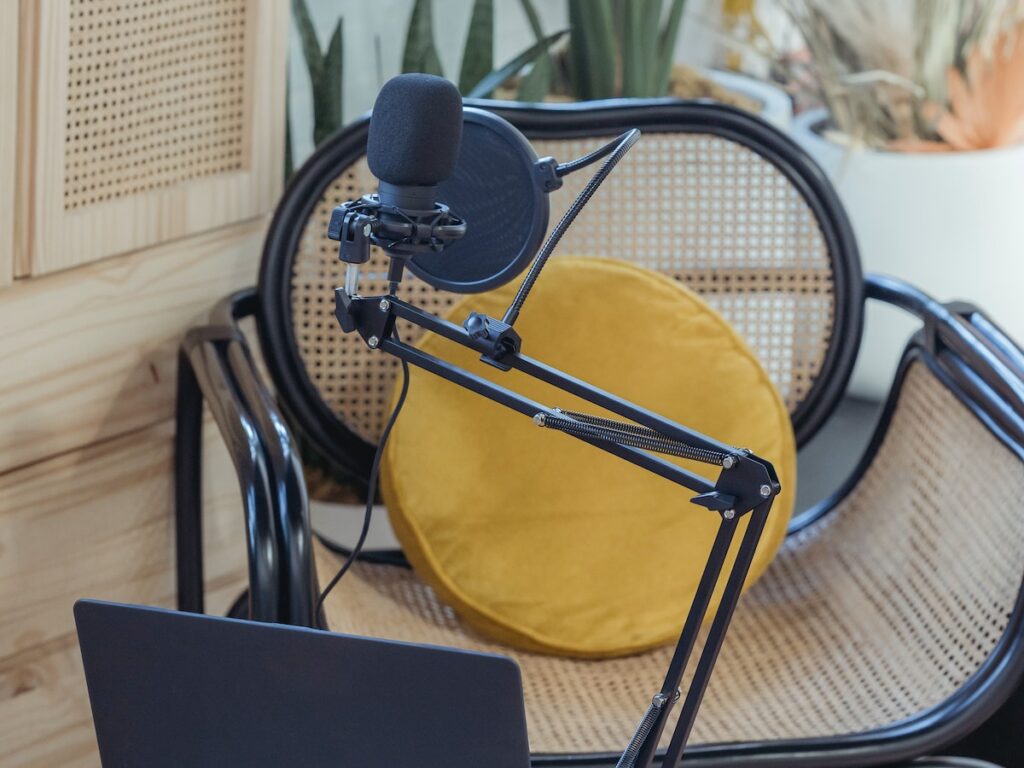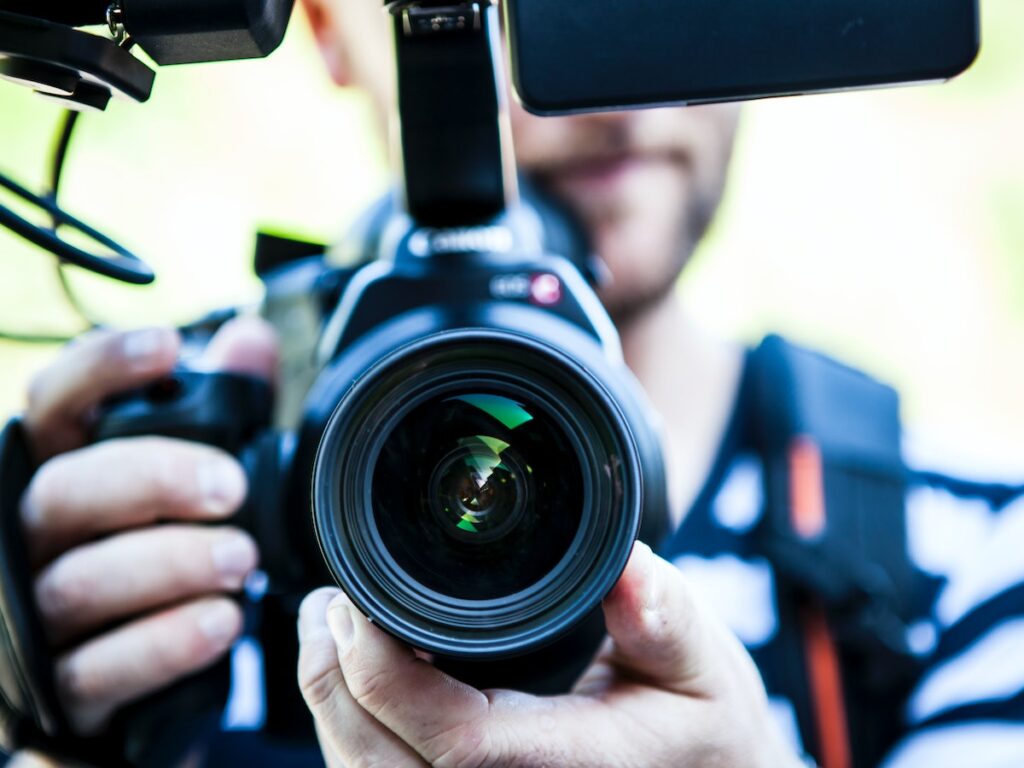Introduction
If you’re a journalist or work in media, and you’ve always wanted to report from the United States, then this article will help you understand everything you need to know about the I Visa. The I Visa is a fantastic opportunity for media professionals to work legally in the U.S. It opens doors to exciting stories, important events, and a thriving media scene in the country.
This article will explain what a media and journalism visa is, who can apply for it, and the step-by-step process to get one. We’ll also tackle common challenges and give you valuable tips to make your visa application a success.
Meaning of I Visa
The Media and Journalism Visa (I Visa) is a special visa offered by the United States to journalists and media professionals from other countries. It allows them to come to the U.S. legally and work on media-related assignments for a specific time.
Furthermore, the main purpose of the I Visa is to encourage the exchange of information and cultural understanding between the U.S. and other nations. It lets foreign journalists report on events in the U.S., cover news stories, do interviews, and be part of media activities.
With the I Visa, journalists and media professionals can share their unique perspectives and contribute to global communication, making the media scene in the United States more diverse and interesting. The I Visa is essential for supporting international journalism, giving media professionals a chance to work in the U.S., and sharing a wide range of stories from all over the world.
Overview of the US Nonimmigrant Visa System
In the United States, there are different types of visas for people from other countries who want to come and stay temporarily for various reasons. This system is called the U.S. nonimmigrant visa system, and it covers a wide range of purposes, including tourism, business, education, and work.
With this visa, media professionals can come to the U.S. for a limited time and do their journalism work legally. Here are some key points about this visa category:
- Temporary Stay: The I Visa is all about temporary stays, meaning journalists can only stay in the U.S. for a specific period, usually based on their media assignment.
- Work Authorization: If you have the I Visa, you’re allowed to work as a journalist in the U.S. That means you can do reporting, interviews, writing, and other media-related stuff.
- Visa Duration and Extensions: The visa is issued for the duration of your media assignment, but if you need more time to finish your work, you can apply for extensions.

Types of Media Professionals Eligible for the I Visa
- Journalists: Whether you work for a newspaper, TV station, radio, or online media outlet, if you’re a reporter or correspondent covering news events, the I Visa is for you.
- Film Crew: If you’re part of a film or documentary crew doing journalism-related projects, like being a camera operator or director, you can also apply for the I Visa.
- Editors and Support Staff: It’s not just frontline journalists who can get the I Visa; editors, translators, and other support staff directly involved in media work can qualify too.
- Freelancers: Even if you’re a freelance journalist, you can still get the I Visa as long as you have a specific media assignment lined up in the U.S.
Eligibility Requirements
To qualify for the Media and Journalism Visa (I Visa), there are a few important things you need to have in order:
- A Job Offer: You should have a job offer from a media organization or employer based in the United States. They need to want you specifically for a media-related job or project.
- Legitimate Media Assignment: You have to prove that your media assignment is real and not just a cover-up for something else. Your employer will provide details about what you’ll be doing, where, and for how long.
- Return Plan: It’s important to show that you don’t plan to stay in the U.S. forever. You need to have strong ties to your home country, like family, a job, or property, to prove that you’ll go back after you finish your media work in the U.S.
Step-By-Step Application Process
Applying for the Media and Journalism Visa (I Visa) may seem overwhelming, but here’s a simple, step-by-step guide to help you through the process:
- Gather Your Things: Get all your important papers ready, like your passport, job offer letter, and details about your media assignment in the U.S.
- Fill Out the Form: Complete the DS-160 form online with your personal info and visa details. Ensure everything is accurate.
- Pay the Fee: There’s a visa application fee to take care of. Check the U.S. embassy or consulate website to know the exact amount and payment options.
- Get an Interview: Schedule your visa interview at the U.S. embassy or consulate closest to you. Be patient, as it might take some time to find a suitable appointment.
- Get Ready for the Interview: The interview is a big deal, so dress nicely and be confident. Be prepared to talk about your media assignment, your ties back home, and your plans to return after your work in the U.S.
- Go for the Interview: Show up on time for your interview and bring all your documents. The consular officer will chat with you and decide if you’re eligible for the I Visa.
- Wait for the Decision: After the interview, the officer will review your application. It may take a while, so stay patient.
- Approved or Not: If your application is approved, you’ll get your passport back with the visa inside. If not, the officer will explain why, and you might have a chance to reapply.
- Prepare to Leave: Once you have your visa, plan your travel to the U.S., like booking flights and arranging accommodations.
Remember, the process can be slightly different depending on where you’re from and your situation. Always check the official U.S. embassy or consulate website for the latest info.
See also: L1 Company Transferee Visa
Common Challenges and How to Overcome Them
When applying for the Media and Journalism Visa (I Visa), there are some common challenges that you might face. Here are some of them and their solutions:
- Insufficient Documents: Sometimes, you might not have all the papers you need for your application. The solution is to create a checklist and make sure you have everything ready before applying. If you’re missing something, ask your employer or sponsor to help you out.
- Showing Ties to Your Home Country: It can be tough to prove that you’ll go back home after your media work in the U.S. To fix this, show evidence of your connections back home, like owning property, having family there, or a stable job. Tell them your plans to return after your work is done.
- Waiting for Your Visa: The visa process can take longer than expected, and this might mess up your travel plans. The solution is to apply early and be patient. Keep track of your application status through official channels.

Special Considerations for Media Organizations and Employers
If you’re a media organization or employer sponsoring journalists for the I Visa, here are some things to keep in mind:
- Your Responsibilities:
When you sponsor employees for the I Visa, you have specific duties to fulfill. Make sure to provide a detailed job offer letter with all the necessary information. Be there to help your employees with any visa-related questions or concerns they may have.
- Supporting Your Employees:
The visa application process can be overwhelming for your employees. Offer your support and guidance throughout the application and interview process. Be the point of contact for any visa-related help they may need.
- Extending or Renewing the Visa:
Sometimes, your employees might need an extension or renewal for their I Visa. Know the process and help them with the required documentation.
By knowing and overcoming these challenges and considering your responsibilities as an employer, getting the Media and Journalism Visa (I Visa) can be a smoother and more successful journey for everyone involved.
Maintaining Legal Status and Compliance
Once you have the Media and Journalism Visa (I Visa) and you’re in the U.S., it’s important to do things right and stay on the safe side. Here are some simple tips to help you out:
- If anything changes, like your address, job, or name, tell the U.S. Citizenship and Immigration Services (USCIS) about it. It’s crucial to keep them updated to avoid any problems with your visa.
- Check when your visa will expire, and if you need more time in the U.S., apply for an extension before it runs out.
- Breaking the rules or overstaying your visa can lead to serious trouble. You might get sent back home or not be allowed to come back to the U.S. later. Always follow the visa rules and laws to keep yourself out of any mess.
Navigating the U.S. Media Landscape on an I Visa
As a media pro with the I Visa, you’ll have a great time exploring the media world in the U.S. Here are some simple tips to help you make the most of your experience:
- Get to know the media laws in the U.S. and the rights journalists have. This will guide your work and help you know what’s allowed and what’s not.
- Show respect and be mindful of others’ rights and privacy while you’re reporting.
- Some stories might be sensitive or touchy. Handle these topics with care and respect for different perspectives.
- Stick to professional ethics and always keep your reporting honest and truthful.
- Meet and connect with other media folks, attend media events, and join media-related groups. Building a network can lead to cool opportunities in the future.
Summary – I visa: Media and Journalism Visa
The Media and Journalism Visa (I Visa) offers an incredible opportunity for journalists and media professionals to explore and contribute to the dynamic media landscape in the United States. Obtaining the I Visa allows you to report on exciting events, cover news stories, and engage in media-related activities while fostering cultural exchange and understanding between the U.S. and other nations.
However, it’s important to be aware of common challenges and comply with visa rules to ensure a smooth and legal stay in the country. Remember to stay informed, stay curious, and always stay true to the principles of responsible and impactful journalism. With the Media and Journalism Visa, the possibilities are endless, and your voice can reach audiences far and wide.
Do You Need to Talk to an Immigration Attorney About Getting Your I Visa?
Contact an experienced immigration attorney through us. Schedule a consultation by calling 914-481-8822. Our experienced attorney will answer your questions and provide the legal guidance required.


